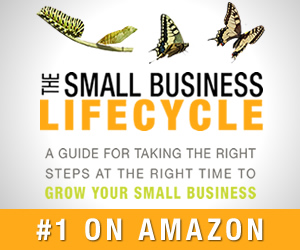On any given day most of us generally have more than enough to do. Sometimes I feel there is so much to do that I hardly know where to begin. Yet the fact is that most weeks I work less than 40 hours, and what needs to be done is done.
People are always asking me how I get everything done. How do I find the time to read, let alone listen to audio books while putting together jigsaw puzles? How can I travel and attend trainings while keeping up with my blog, my business, the garden, our grandkids? What’s my secret?
There are many answers, but one in particular arose in the midst of my morning meditation recently. As usual, my mind was prancing around like a young puppy, willing to heel for only a moment or two before racing off to explore some enticing scent in the bushes. Also as usual, one of these enticing scents was my “To Do” list.
As I gave a gentle tug on my mental leash, I experienced a sudden shift in perception. It was as if I had slipped through the looking glass to discover that I was living in a world of abundant possibility as opposed to one of temporal scarcity.
I no longer had the problem of not enough time; I had the gift of more than enough to do.
Say what?
Consider this. When you are invited to a smorgasbord laden with more delicacies than you can possibly sample, you choose from among the offerings the ones that you want most. What you choose will depend on your needs, desires, and values. Do you want to try something new? Do you want to experiment with a new combination of familiar pleasures? Do you have allergies to consider? Is there a favorite food you want to make sure to taste again?
Sure, you could approach the buffet with resentment, frustrated that the thoughtless hosts had plotted to overwhelm you. But why on earth would you adopt that point of view? What would you gain?
We do not have to do everything on our to do lists any more than we would have to eat everything at a buffet. Accepting that we can not do it all is part of the pleasure of acknowledging the wealth of opportunity before us. Here are some of the practical ways this shift shows up:
- When we notice that we have more than enough, it is natural to look for how we can share it, giving a whole new twist to the notion of delegating work. Who would enjoy doing this? Who would enjoy learning how to do this? With whom would you like to try this?
- When we notice that we have more than enough, it is natural to wonder what we want most and why. This invigorates the process of setting priorities. What would be the most fun? What would be the most nourishing? What can keep for another day? What can you enjoy from a distance?
- When we notice that we have more than enough, it is natural to act from gratitude and to express gratitude through good stewardship. For the sake of what shall we make this choice? What makes the most sense or is most necessary in light of current conditions? What selections support healthy ambition? How can we preserve or conserve opportunities for another person or another day? If we cannot use an opportunity, how can we be complete with it?
- When we notice that we have more than enough, we can trust the ebb and flow of natural abundance. We can regard unused possibilities as compost for the future. We get to appreciate that times of apparent emptiness are the seedbed for times of opportunity. We can know that when seedlings grow too thickly, it is time to thin the garden, not to complain about the pressure of competing priorities.
This week, notice your relationship to time and the things you have to do. Check your emotional weather report as it relates to planning either for the day or for a specific project over a period of days. Then notice the physical sensations that correspond to this weather report. How does this change when you play with the notion that rather than having too little time you have more than enough to do, an abundance of opportunity?
Once you have felt your way into this different frame of mind, see what new possibilities show up. What actions are possible (and how are they qualitatively different) from this place?
Image Credit: Watson Lau



Speak Your Mind